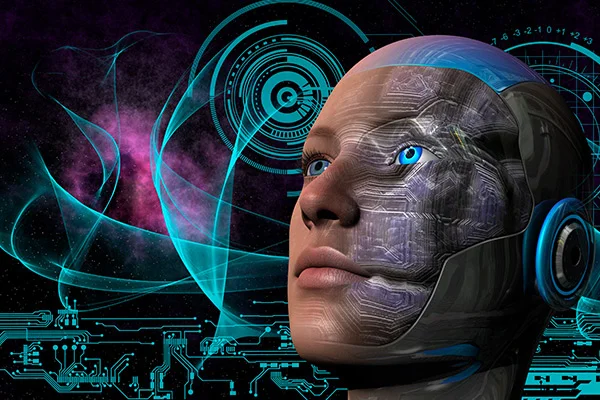AI-based Visual Inspection and Integration with Deep Learning
Table of Content Why Vision-based inspection needs AI How Vision-based inspection can make good use of AI Using the Deep Learning Model Computer vision (also known as Machine Vision) is a growing field, and incorporating AI-based visual inspection is a great way to use the power of artificial intelligence. While human eyes may have difficulty detecting specific patterns, AI can recognize them. The advantages of AI extend beyond the cost savings to freeing up personnel for higher-value tasks. As component sizes and quality standards continue to tighten and production environments become more dynamic, manufacturers are turning to machine vision solutions to improve the quality and speed of their products. AI is becoming more commonplace in manufacturing environments, and the introduction of this technology in machine vision systems helps integrators stay competitive. Why Vision-based inspection needs AI Machine vision inspection solutions have long been at the forefront of industrial automation. Traditional machine vision analyzes images and photos to identify defects. While this helps reduce human error and increase productivity, this technology falls short of addressing more complex defects and adjusting to changing environments. But with the introduction of AI, manufacturers can use visual inspection with artificial intelligence-powered models to improve quality and reduce costs. Although human inspectors and rules-based machine vision still play a crucial role in visual inspection, sending out a single defective piece to a customer is not a good idea and could cost a company its reputation. AI-powered vision inspection systems identify manufacturing anomalies much faster than human inspectors. These AI solutions can be deployed quickly and customized to a specific scenario.They can also be used to inspect high-volume, complex parts and products. The advent of AI platforms such as Google Cloud’s Visual Inspection AI allows manufacturing companies to implement proof-of-concept (PoC) or deployable solutions in weeks rather than years. The benefits of AI-powered visual inspection solutions are numerous, and their potential is immense. How Vision-based inspection can make good use of AI Computer vision algorithms can help with visual inspection in a variety of settings, from industrial settings to infrastructure, in the following ways: A trained AI model needs a powerful computer to perform the inspection. GPU is necessary for real-time results. The performance of an inspection model depends on many factors, including the types of defects, image resolution, and lighting conditions. For existing applications, the embedded device mimics a camera. It then runs an AI algorithm over the camera feed to process. Then, the processed data to the inspection application over GigE Vision. Moreover, an embedded device can be programmed to save incoming images for offline training. This feature can be very useful when training AI systems. The process of deploying AI into a traditional computer vision inspection system is simplified with “no-code” AI software training packages. AI-powered vision-based inspection solutions can help reduce production costs and increase productivity by up to 90%. The AI-enabled machine vision system can alert employees to unsafe zones and flag mistakes. It can also measure cycle time, a key production index. It can also improve worker efficiency by monitoring employee position and behavior. The perks of incorporating AI in vision-based inspection seem to be unmatched, and its accuracy and efficiency can be increased with time since it feeds on new data and deep learning. If your business requires AI-based visual inspection solutions, look no further than Prescient Technologies. Prescient’s flagship product, iNetra, dwells extensively in smart vision and helps clients from different verticles address their vision-based inspection and smart surveillance requirements. Using the Deep Learning Model Machine vision and deep learning technology have combined to create a new way to inspect products and services. While machine learning is more appropriate for precision alignment, deep learning is a powerful tool for computer vision. Deep learning technology uses neural networks to mimic the human brain’s ability to learn by example. Integrating Deep Learning with Vision-based Inspection Artificial intelligence (AI) vision-based inspection systems are gaining ground in Production and Manufacturing. AI solutions for this task harness deep learning to automate inspections with high accuracy and improved decision-making processes. They can perform a multitude of tasks, from image classification to defect detection. Image classification models are based on a set of training and testing images. The training set contains images of various products that do not have defects, and the testing set includes images of products with defects. Using a CNN model for inspection allows for advanced learning with many defect images. By using this technique, AI vision systems can detect and classify defects in various environments. Deep learning models have become an essential part of inspection software. They are trained by analyzing thousands of images and gradually learn to detect significant deviations from the bolt standard appearance. Deep learning models can solve a range of inspection problems using a combination of tasks, such as Object Detection, semantic segmentation, image classification, and OCR models. If you’re looking for AI vision-based inspection, it’s a great time to explore these advanced technologies. If you’re looking for experienced professionals to take care of these advanced technologies for you, it’s a great time to contact Prescient technologies.
Read More